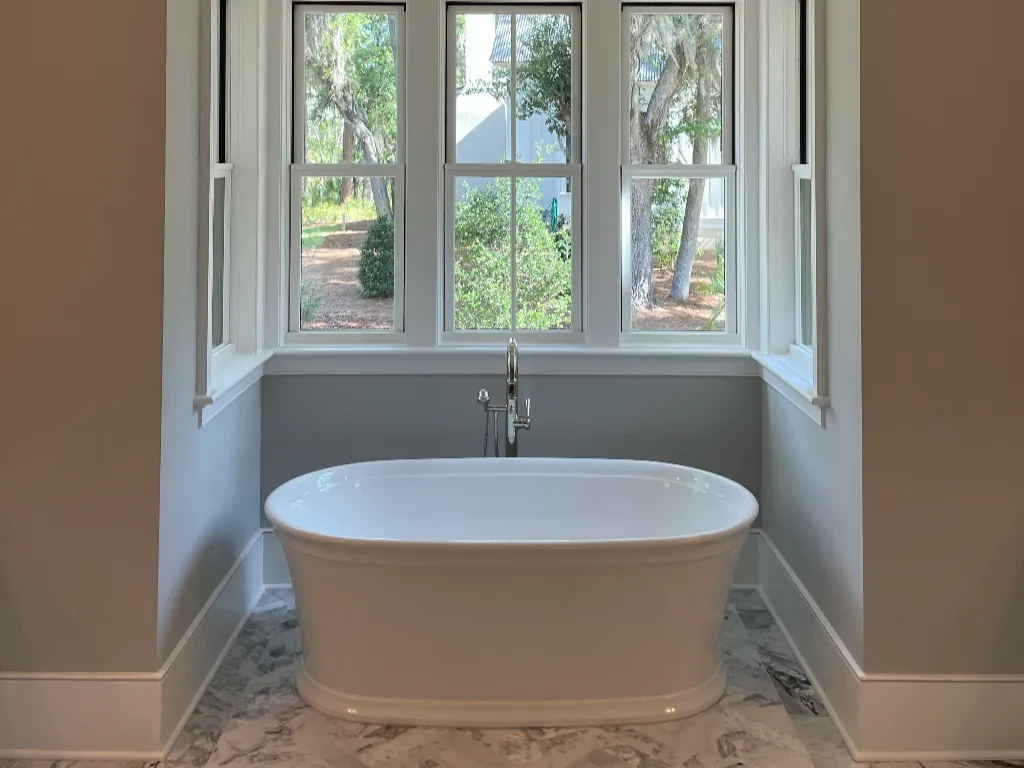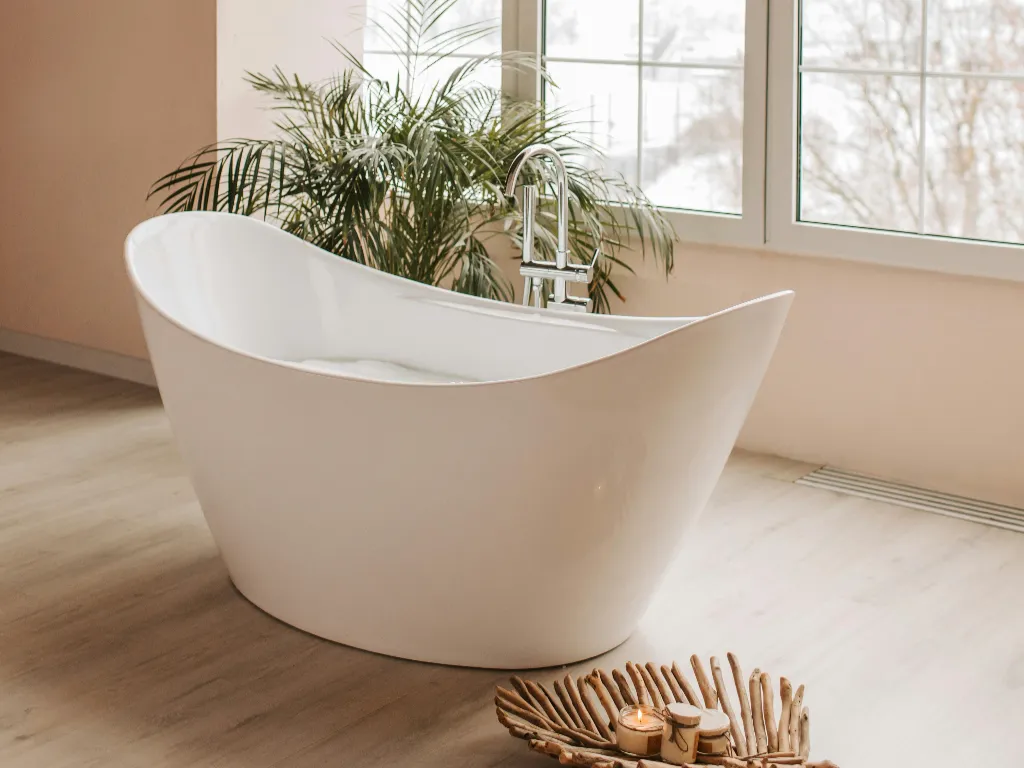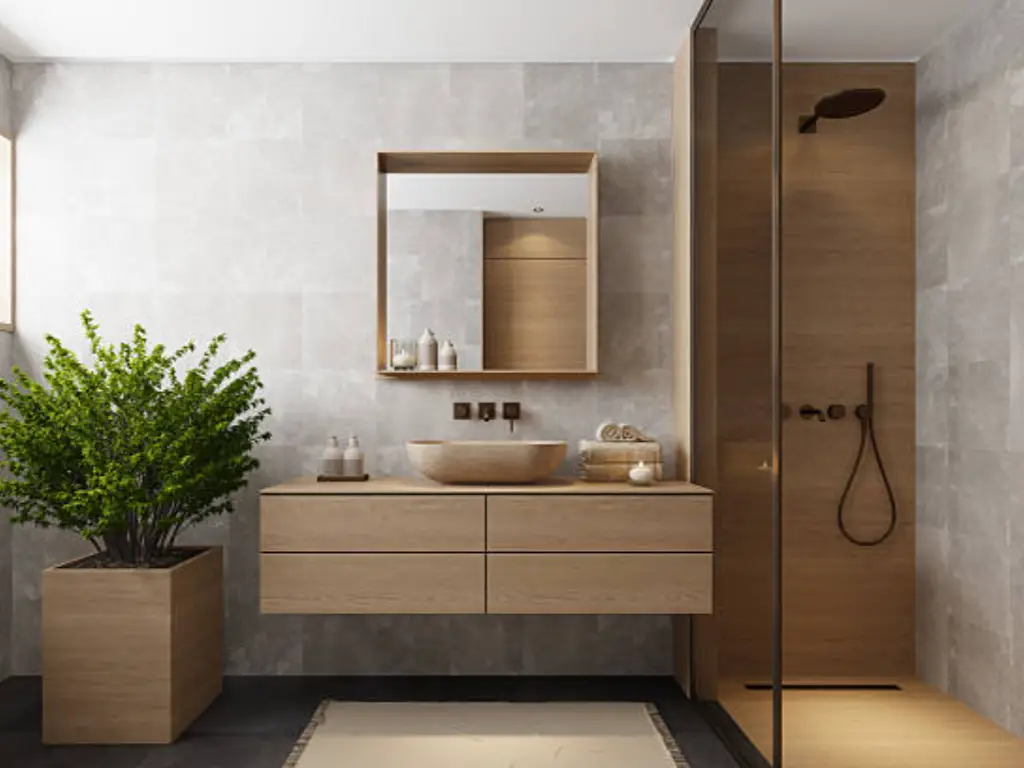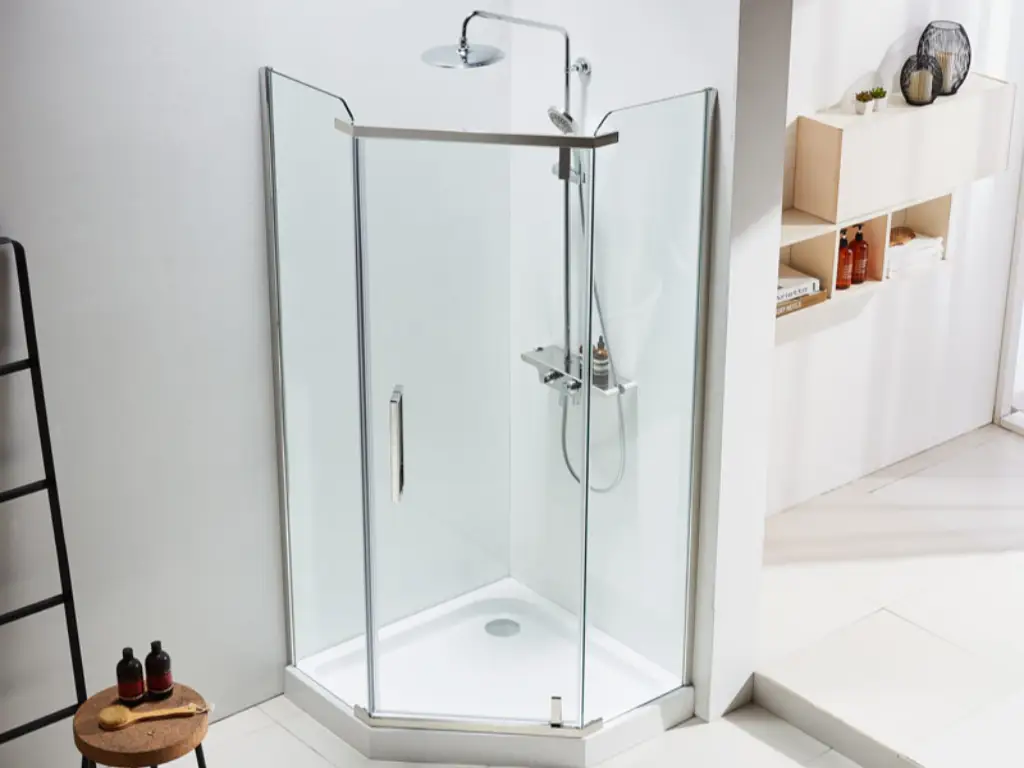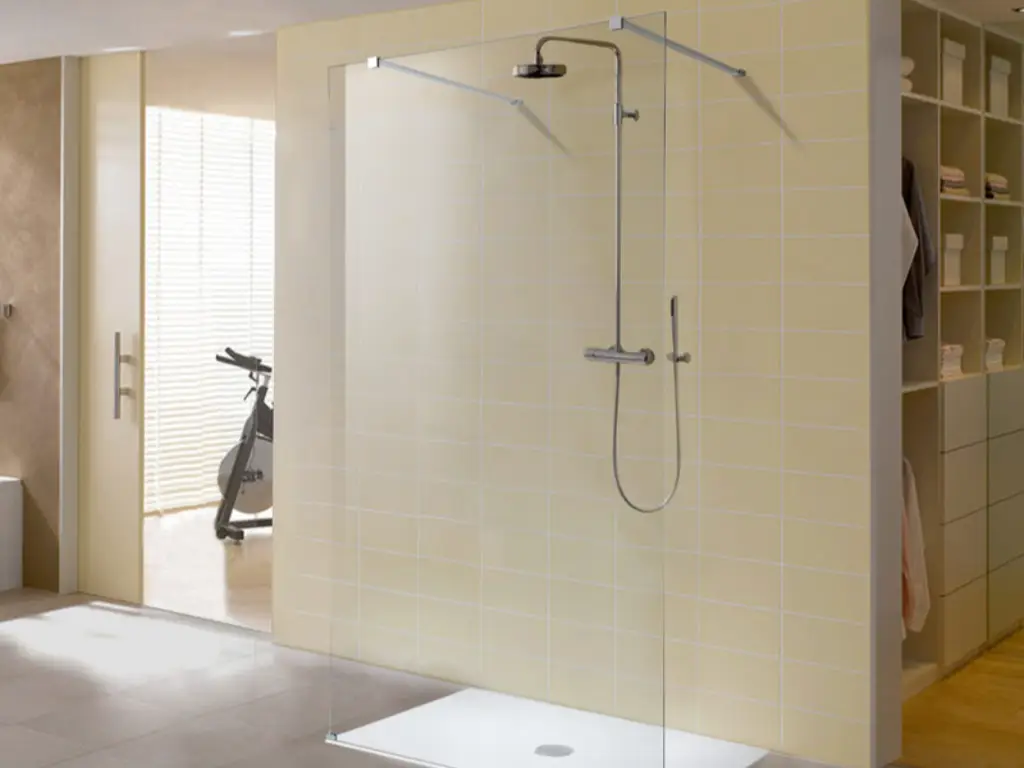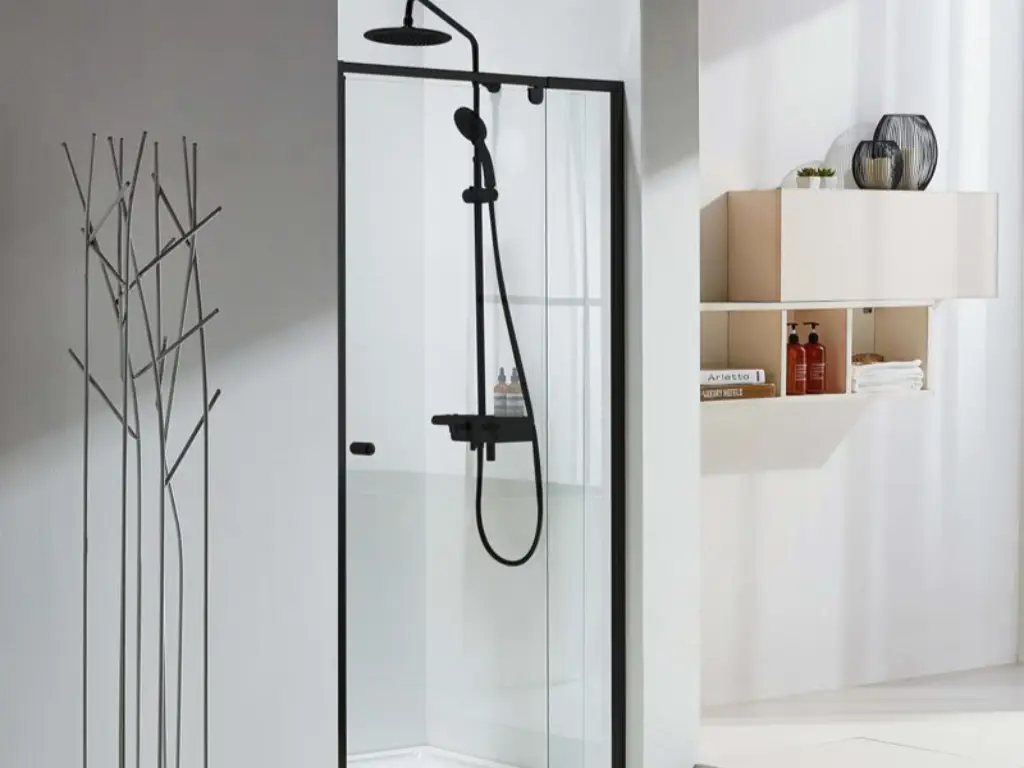When designing or remodeling your bathroom, selecting the right shower door is one of the most crucial decisions. Your choice of shower door profoundly impacts both the functionality and visual appeal of your bathroom. With so many different types of shower doors and types of glass shower doors, it can be overwhelming to make the right choice. This guide introduces 11 styles of shower doors and explores the different types of glass for shower doors, helping you decide which type of shower door is best for your space.
Why Choosing the Right Shower Door Matters
Shower doors play a pivotal role in shaping the aesthetics, ambiance, and practical use of your bathroom. Whether you’re considering a frameless shower door, a space-saving sliding door, or a unique corner shower enclosure, understanding their advantages and how they fit your layout, style, and budget will help you make an informed decision.
Top Shower Doors: The 11 Styles You Need to Know
Selecting the perfect shower door style is a crucial step in creating a bathroom that aligns with your functional needs and aesthetic vision. The following list explores the diverse options available, each offering unique benefits to suit different spaces and preferences.
1. Sliding Shower Door
Sliding shower doors offer a space-efficient solution, effortlessly gliding along tracks to eliminate the need for extra clearance. These doors, also known as bypass doors, are space-saving and efficient.
- Best for: Small bathrooms with limited floor space.
- Advantages: Saves space, affordable, and easy to use.
- Drawbacks: Tracks may require frequent cleaning to avoid dirt buildup.
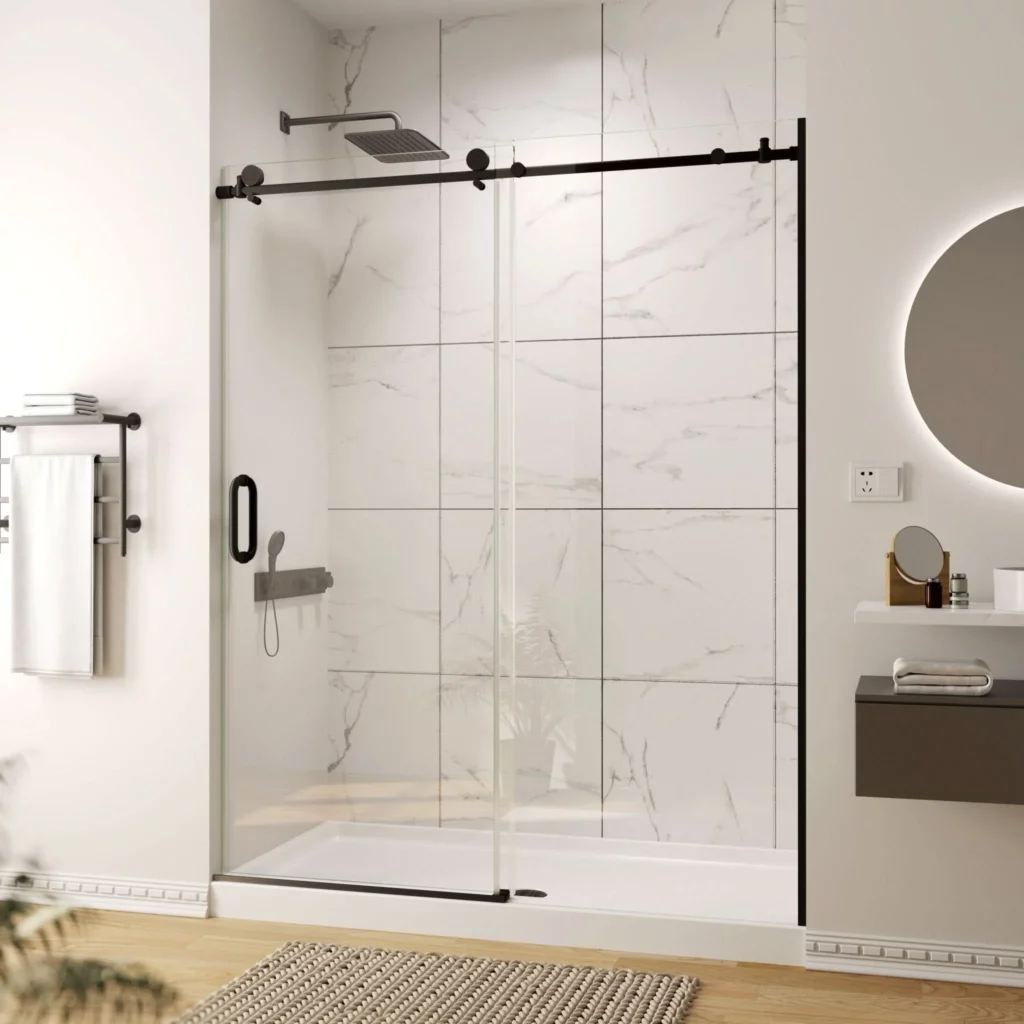
2. Hinged Shower Door
Hinged doors swing open like a traditional door, either inward or outward. They offer a clean, minimalist look when paired with frameless glass.
- Best for: Spacious bathrooms.
- Advantages: Durable and elegant.
- Drawbacks: Requires extra space for door clearance.
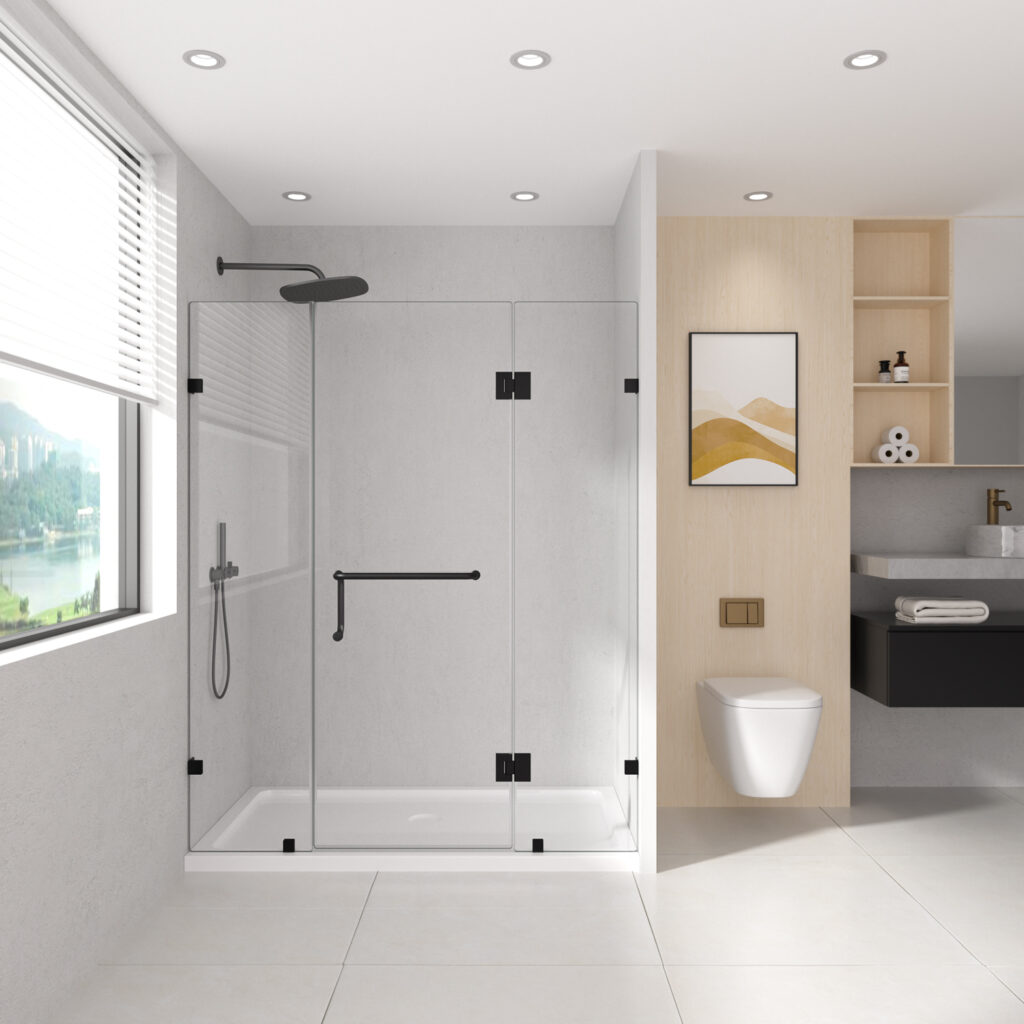
3. Pivot Shower Door
Pivot shower doors are similar to hinged doors but rotate on a central pivot point, allowing for a full range of motion. These are often used in modern bathroom designs.
- Best for: Medium to large bathrooms.
- Advantages: Sleek and modern.
- Drawbacks: Limited to specific layouts.
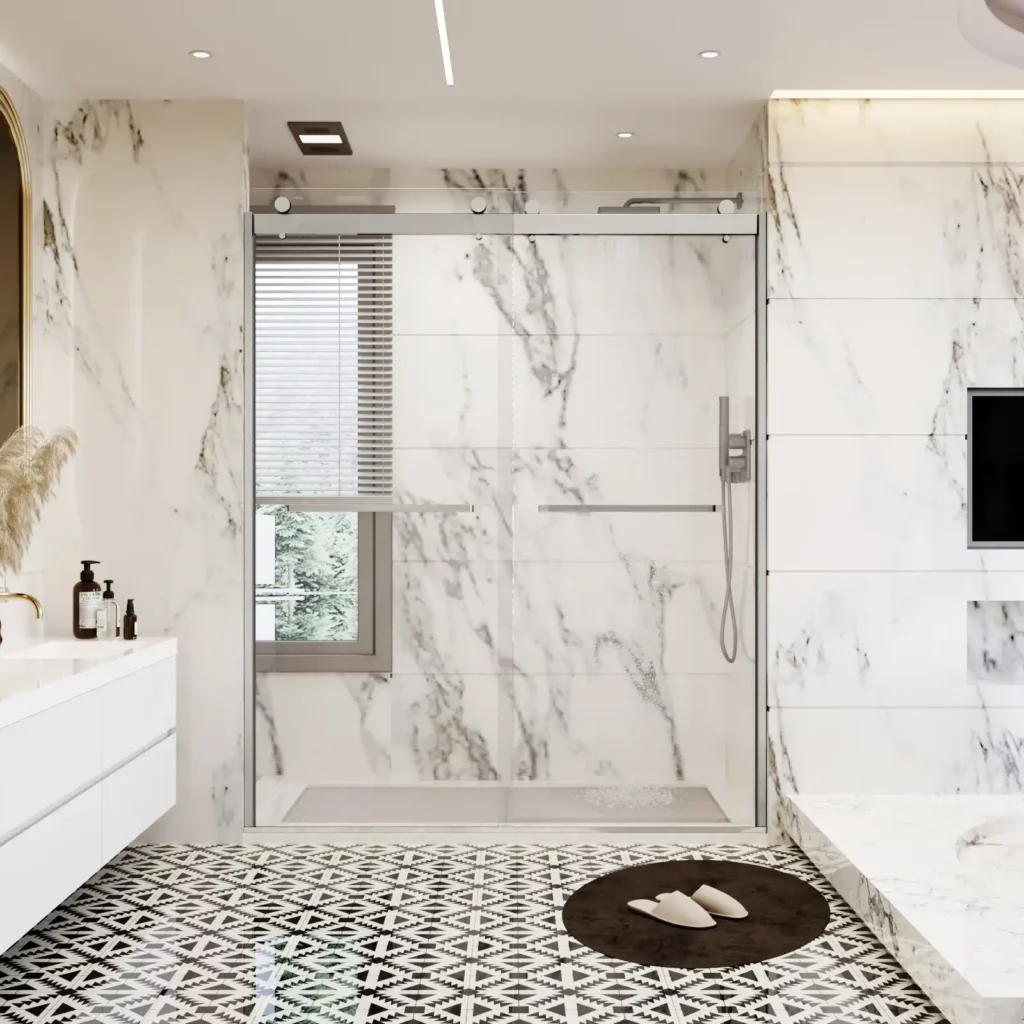
4. Framed Shower Door
Framed shower doors include a sturdy metal frame that encloses the glass panel, offering stability and durability. However, their bulkier appearance may not suit modern aesthetics.
- Best for: Traditional designs.
- Advantages: Cost-effective and highly durable.
- Drawbacks: Bulkier appearance compared to frameless options.
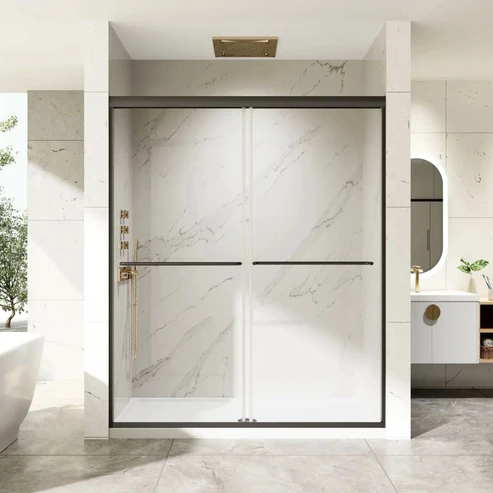
5. Frameless Shower Door
Frameless shower doors are prized for their sleek, modern elegance and minimalist design. They rely on heavy-duty glass and minimal hardware for support.
- Best for: High-end, modern bathrooms.
- Advantages: Maximizes light and space, easy to clean.
- Drawbacks: Higher cost and professional installation required.

6. Semi-Frameless Shower Door
Semi-frameless shower doors combine the sturdiness of framed doors with the elegance of frameless designs. They feature minimal framing, usually around the edges.
- Best for: Mid-range budgets.
- Advantages: Balanced aesthetics and durability.
- Drawbacks: Limited design flexibility compared to frameless.
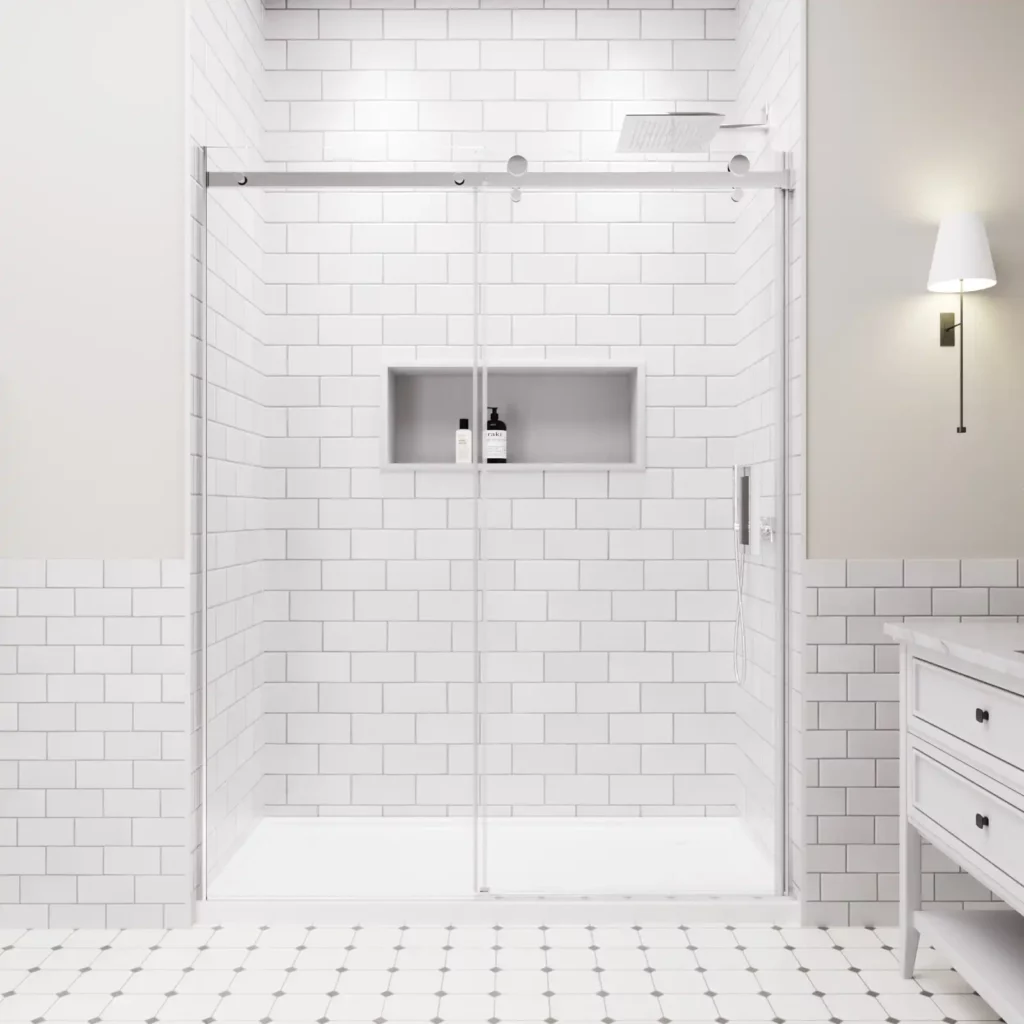
7. Bi-Fold Shower Door
Bi-fold shower doors fold in on themselves, making them ideal for bathrooms with limited space.
- Best for: Small bathrooms.
- Advantages: Space-efficient and modern.
- Drawbacks: More moving parts can mean higher maintenance.
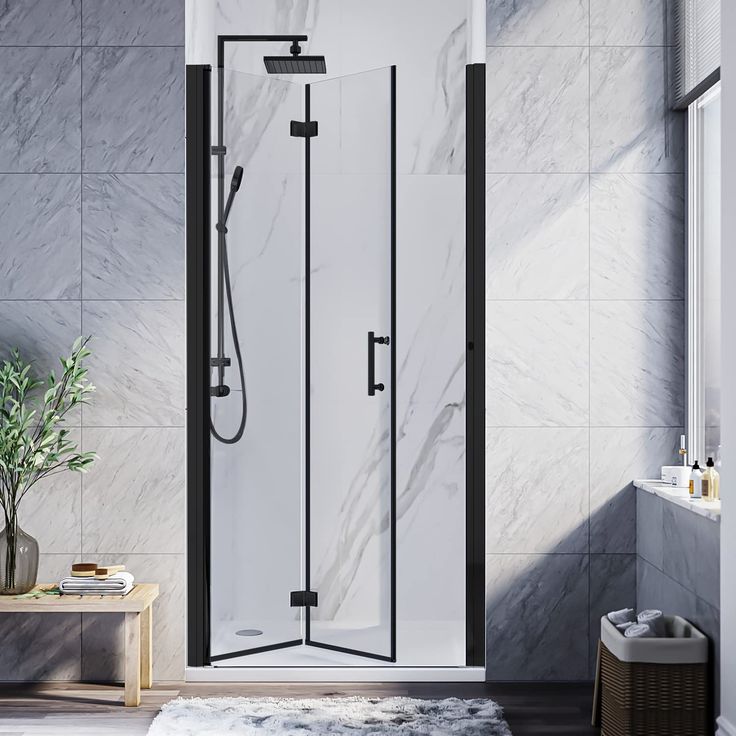
8. Corner Shower Door
Corner shower doors are designed for bathrooms with shower enclosures located in the corner. They come in various styles, including hinged or sliding options.
- Best for: Bathrooms with tight layouts.
- Advantages: Maximizes space and offers flexibility in design.
- Drawbacks: Limited to specific configurations.
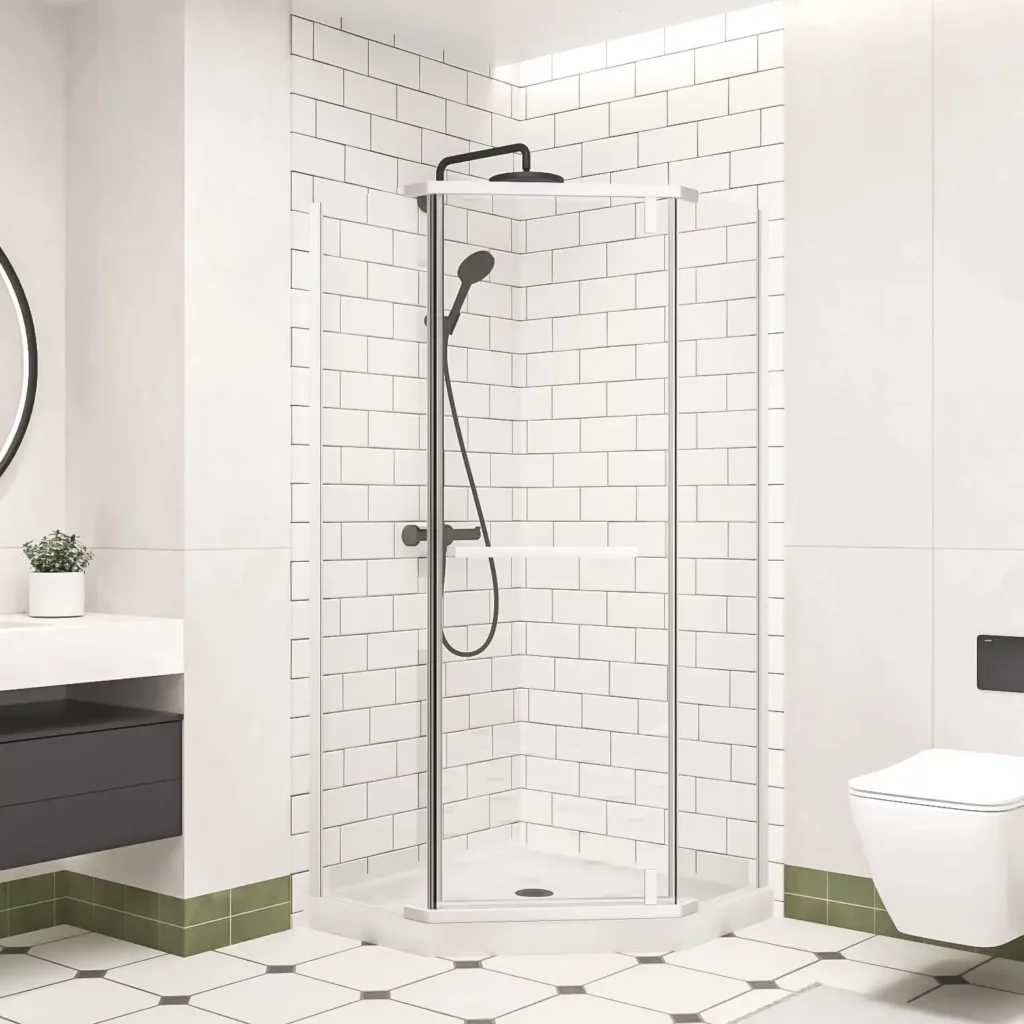
9. Walk-In Shower Door
Walk-in shower doors create an open, doorless entry. They’re perfect for contemporary designs and provide a spa-like experience.
- Best for: Large bathrooms.
- Advantages: Open and airy design.
- Drawbacks: May result in water splashing outside the shower area.
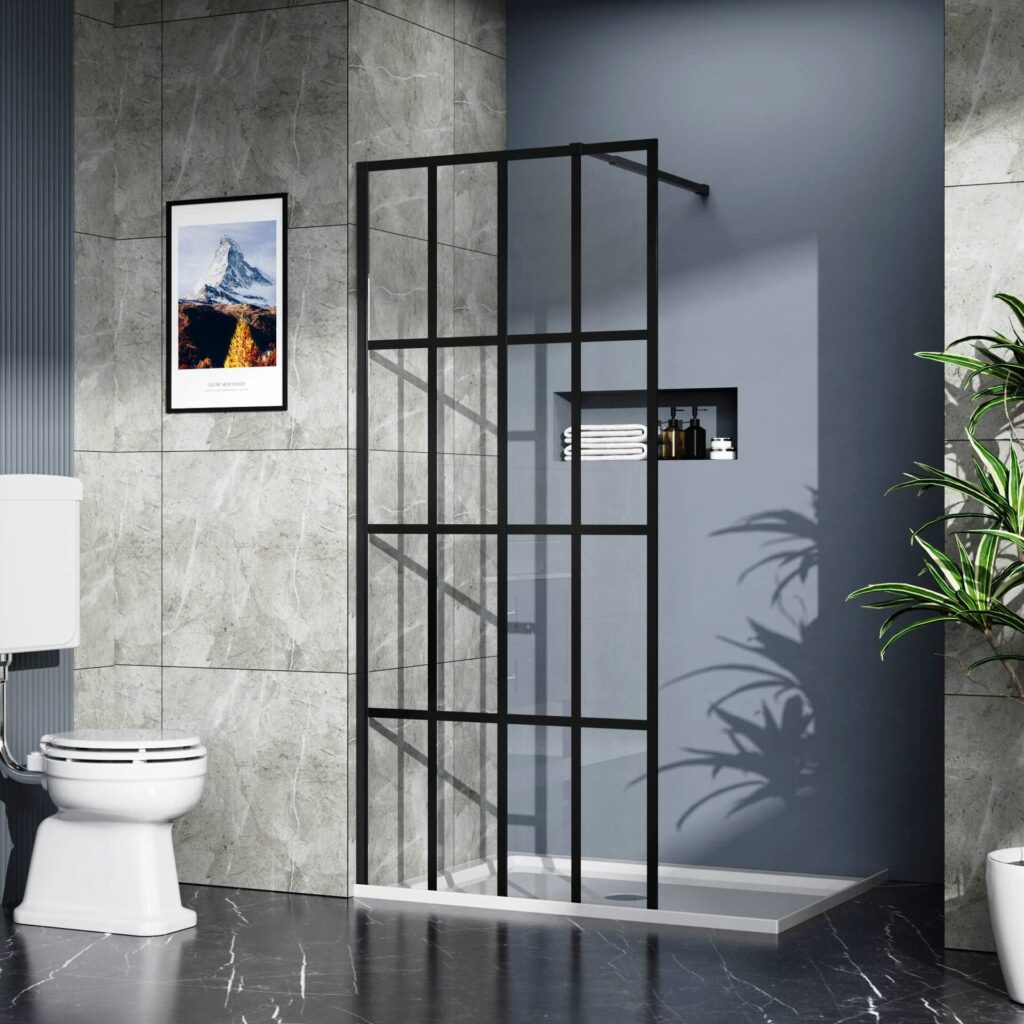
10. Curved Shower Door
Curved shower doors feature a rounded design that softens the look of the bathroom and maximizes space within the shower.
- Best for: Unique layouts or circular shower enclosures.
- Advantages: Stylish and space-efficient.
- Drawbacks: Higher cost and limited availability.

11. Steam Shower Door
Steam shower doors are fully sealed to keep steam contained. They’re ideal for those who want to enjoy the benefits of steam therapy at home.
- Best for: Luxury spa-like bathrooms.
- Advantages: Enhances relaxation and wellness.
- Drawbacks: High installation cost.
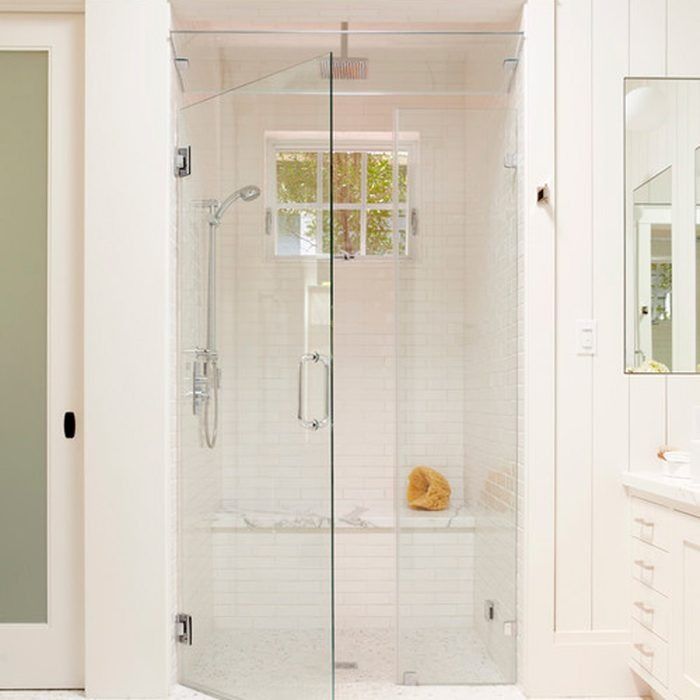
Types of Glass Shower Doors: Which Option is Best?
Selecting the appropriate glass type is just as vital as choosing the door style, as it greatly influences both the aesthetic appeal and practical functionality of your shower space. Selecting the right type of glass enhances your bathroom’s visual appeal and meets your privacy and maintenance needs. Here are the most common types of shower glass to consider:
1. Clear Glass
Clear glass stands out as the most favored choice among types of glass shower doors, celebrated for its contemporary and spacious visual effect. It enhances the sense of space by allowing light to pass through.
- Best for: Modern designs.
- Advantages: Creates an airy, open feel.
- Drawbacks: Requires frequent cleaning to avoid water stains.
2. Frosted Glass
Frosted glass adds privacy while still letting light through. The matte finish is created through etching or sandblasting.
- Best for: Family bathrooms.
- Advantages: Provides privacy and reduces maintenance.
- Drawbacks: Limits visibility into the shower space.
3. Textured Glass
Textured glass comes in various patterns that add visual interest to the shower door. It balances privacy with light diffusion.
- Best for: Decorative designs.
- Advantages: Unique and stylish.
- Drawbacks: Can be more expensive than clear or frosted glass.
4. Tinted Glass
Tinted glass adds color to your bathroom, with options such as bronze, gray, or blue tints. It creates a distinctive aesthetic.
- Best for: Statement bathrooms.
- Advantages: Reduces glare and enhances privacy.
- Drawbacks: Darkens the shower area.
5. Tempered Glass
Tempered glass is a safety glass designed to break into small, blunt pieces if shattered. Most shower doors use this type of glass.
- Best for: Any bathroom.
- Advantages: Durable and safe.
- Drawbacks: Limited design variations.
6. Low-Iron Glass
Low-iron glass eliminates the greenish tint found in standard glass, offering ultra-clear transparency.
- Best for: High-end bathrooms.
- Advantages: Perfect for showcasing tile designs.
- Drawbacks: Higher cost.
What Type of Shower Door is Best? Factors to Consider
To determine which type of shower door best suits your needs, take the following key factors into account for a more informed and seamless decision-making process:
- Bathroom Size and Layout
- Small bathrooms benefit from sliding, bi-fold, or corner shower doors.
- Large bathrooms can accommodate hinged or walk-in doors.
- Style Preferences
- Choose frameless or clear glass options for a sleek, modern look.
- Opt for framed or frosted glass for a traditional or private space.
- Budget
- Framed doors provide a budget-friendly option, while frameless or low-iron glass doors, though pricier, deliver an upscale aesthetic.
- Ease of Maintenance
- Clear and tempered glass requires regular cleaning.
- Frosted or textured glass is easier to maintain.
- Safety and Durability
- Tempered glass ensures safety, especially for families.
- Frameless designs need expert installation for stability.
FAQ: Frequently Asked Questions
Q: How do I prevent water stains on glass shower doors?
- Use a squeegee after each use and apply a glass sealant to repel water.
Q: Can I install a frameless shower door myself?
- Frameless doors require professional installation to ensure safety and proper alignment.
Q: Are corner shower doors customizable?
- Yes, most manufacturers offer custom sizes and designs for unique layouts.
Q: What’s the difference between textured and frosted glass?
- Textured glass has patterns for decoration, while frosted glass has a uniform matte finish for privacy.
Q: Which shower door is the easiest to clean?
- Frameless and clear glass doors are easiest to clean, but they require regular maintenance to avoid water spots.
Conclusion
Selecting the right shower door involves balancing functionality, style, and budget. From space-saving sliding doors to luxurious frameless designs, there are countless different shower doors to suit your needs. Pairing the right style with the perfect types of glass for shower doors ensures your bathroom is both beautiful and practical. Whether you’re remodeling a compact guest bathroom or creating a spa-like retreat, understanding these options will help you make the best choice for your home.


